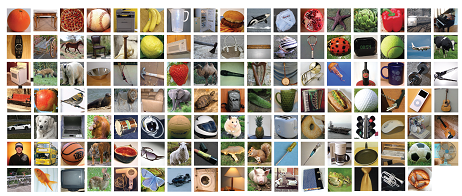Letting go can be a tough gig. Whether it’s overcoming a habit, deciding to turn away from the expectations of others by choosing a path which is true to you, or being pragmatic in calling time on an idea that just isn’t working despite the hit inflicted on our ego. Even letting go of substances that are destroying our health can evoke a yearning of loss.
This reluctance to let go is often fuelled by feelings of anxiety, uncertainty and discomfort. By the fear of the unknown, and of bidding farewell to what seems safe and secure. Such a collective of fears can be so strong that we prefer to remain in big comfort zones where things are familiar, where we are a sense of worth, and where we share with others who are just like us, people with similar views and attitudes.
Comfort zones play out in our workplaces
These same challenges of letting go play out in the workplace. Whether it’s being asked to deliver your first presentation, stepping up to lead a team of people, navigating a change process, or standing up to the workplace bully and underhanded gossip even if it means being ostricised by a popular cohert.
Regular nudges to step outside (or even to just stretch) our comfort zones are a constant hark that pull and tug, and often call us to question.
So if letting go is such a challenge, why bother? Why not just continue to reside within our comfort zones? A simple answer is that tomorrow is going to be different to today, and we can no longer look for opportunity in the same place as yesterday. The ‘way things used to be’ is no longer the ‘haven’ it used to be. This perspective is driving change in business operations as reflected by the following comment in the EY Publiciation on Future of Banking in Emerging Markets
“ We are not going to bring people into the organization who expect to do things the same way as they have done them before. Whether you are a technical person or a compliance person, you need to think differently or we are not going to hire you.” Fernando Teles, Head of Consumer Banking, Banco Original, Brazil.
A similar trend is picked up by Gerard Marion in his post You can’t do today’s job with yesterday’s methods and be in business tomorrow.
Comfort zones are now places of vulnerability
I would up the ante on the world being just different and say that it’s already disruptively different. And from a multiple of forces that include not just technology but globisation and the converging of people with an immense diversity of cultures, habits and norms. Within such a world comfort zones are no longer a place of refuge as much as places of vulnerability.
Relentless disruption requires an attitude and capability to navigate the differences that arise from such disruption. To not only manage the challenge of letting but to embrace diversity and difference when we do.
The need for diversity
In the words of the ex-New York columnist James Surowiecki (author of ‘The wisdom of crowds’) … Diversity and independence are important because the best collective decisions are the product of disagreement and contest, not consensus or compromise.
Likewise, a report re-released by McKenzie in 2015 recommends the same need to focus on diversity within the workforce.
The need for diversity is nothing new. The natural world has been advocating for diversity ever since amorphous blogs divided in two – even the naturalist and explorer Charles Darwin advocated for its benefits predicting that productivity is better served by diversity than similarity. A prediction now supported by research at the University of Toronto, where researchers are warning of the threat to the survival of the planet if we do not maintain biotic diversity.
With unity we celebrate diversity
I’m all for diversity and for the investment of effort in navigating differences in ethnicity, talent, attitude, beliefs and other identifying qualities. For crafting and nurturing a culture that is inclusive of diverse points of view, backgrounds, and experiences.
I believe that within difference we’ll always find similarities, regardless of how divorced two or more things might first appear. It’s just a question of desire and how motivated we are to journey within these differences.
Such a journey can reveal opportunities that reside beyond the world of labels – beyond what we encounter as ‘face value’. Within the business landscape it casts us into the world of our customer, consumer, stakeholder and colleague. It asks us to listen to what matters to people, to seek out alternatives perspectives and new understandings. It helps to clarify and readjust our assumptions and enrich our current positions.
If we hold back from such a journey these same differences can form divisions and find us defending positions that isolate and create insularity. We react to assumptions versus responding with understanding. We compromise our ability to grow, expand, and progress and to borrow from the words of Sir Issac Newton … to ‘see further because we have been able to stand on the shoulders of giants‘.
